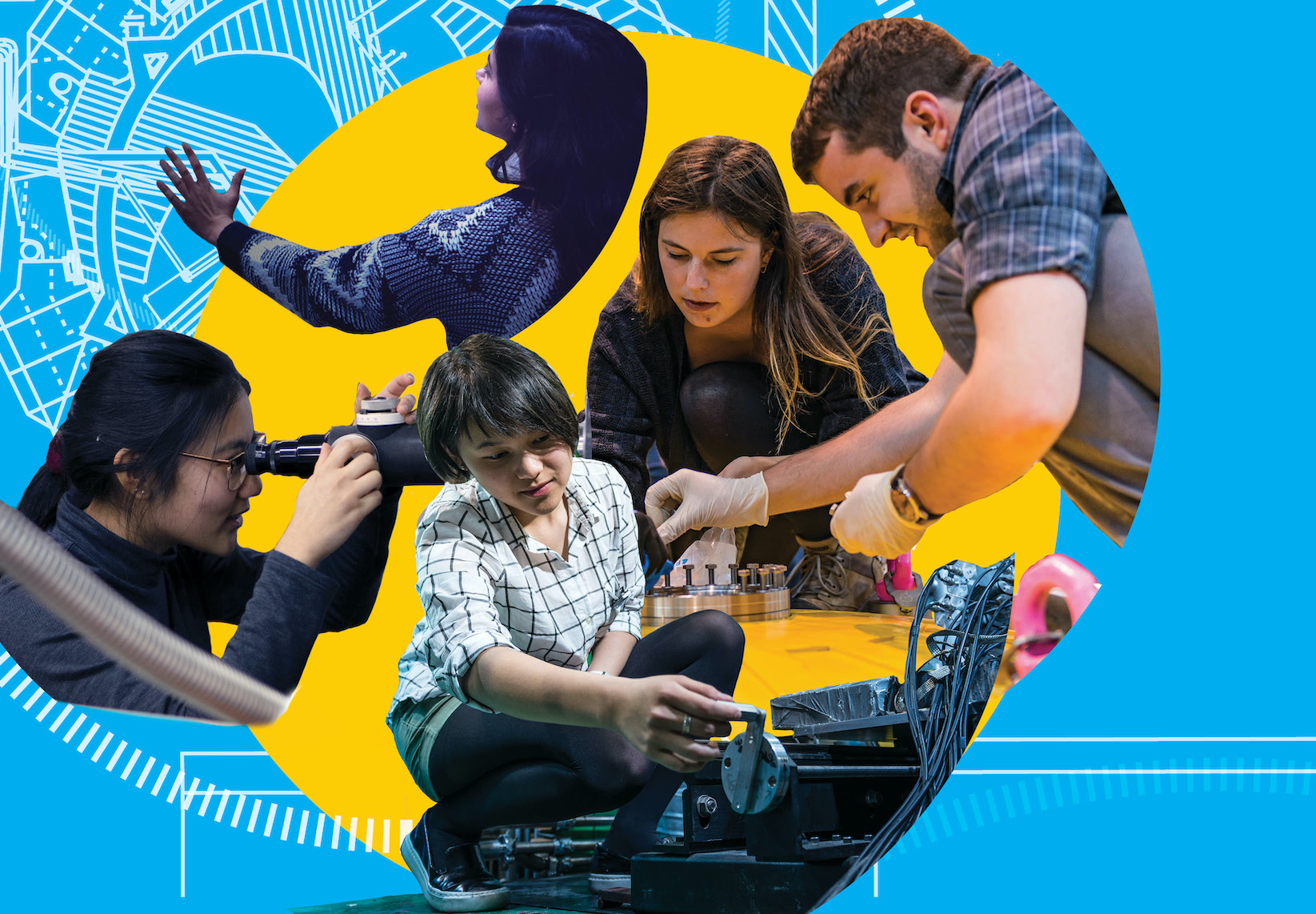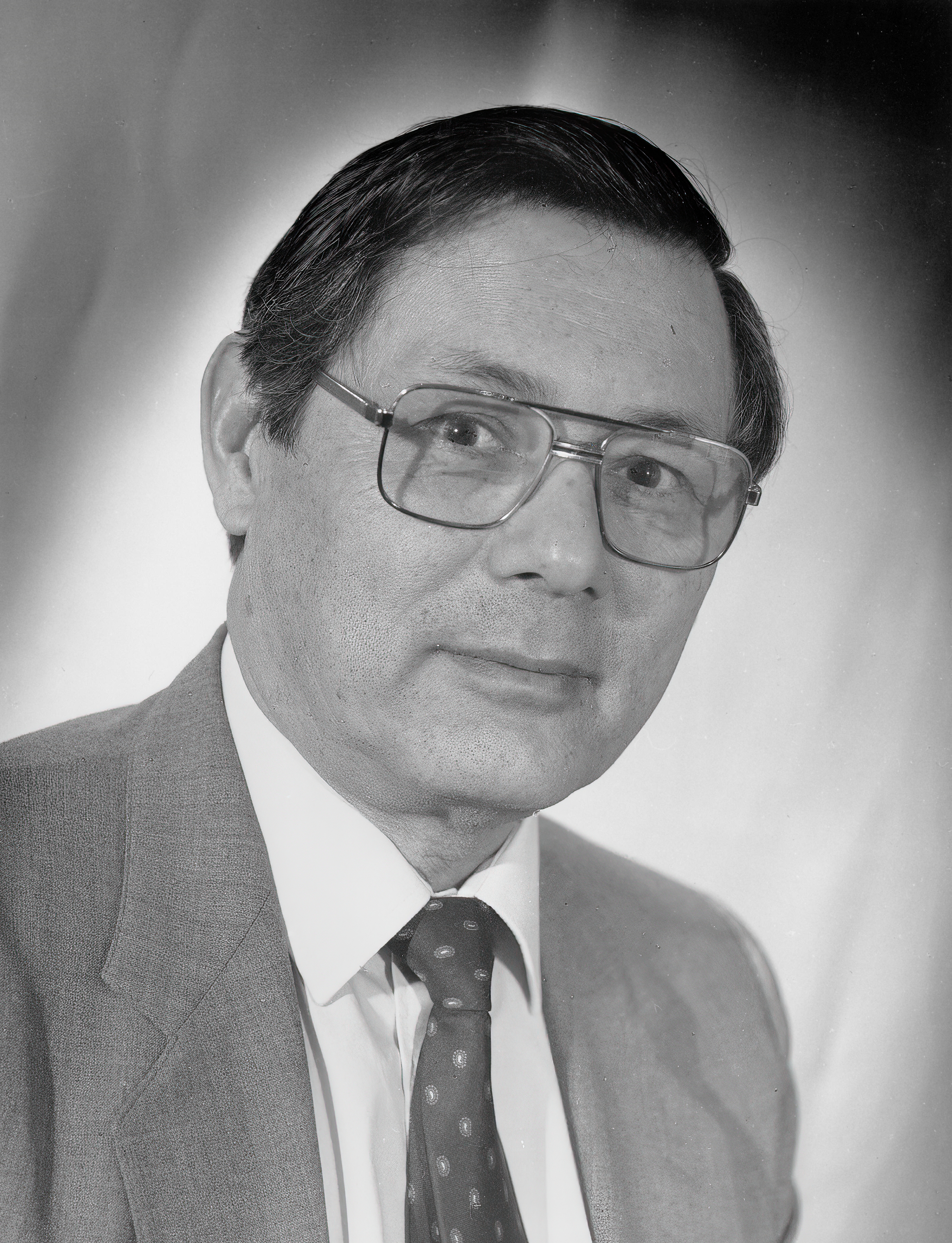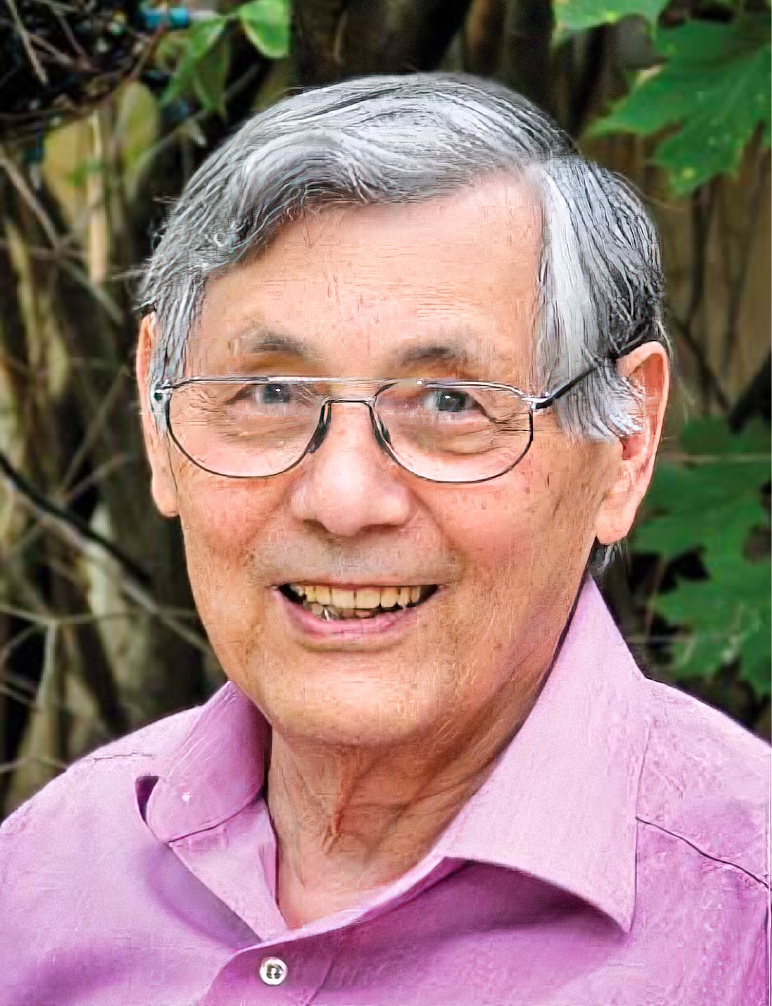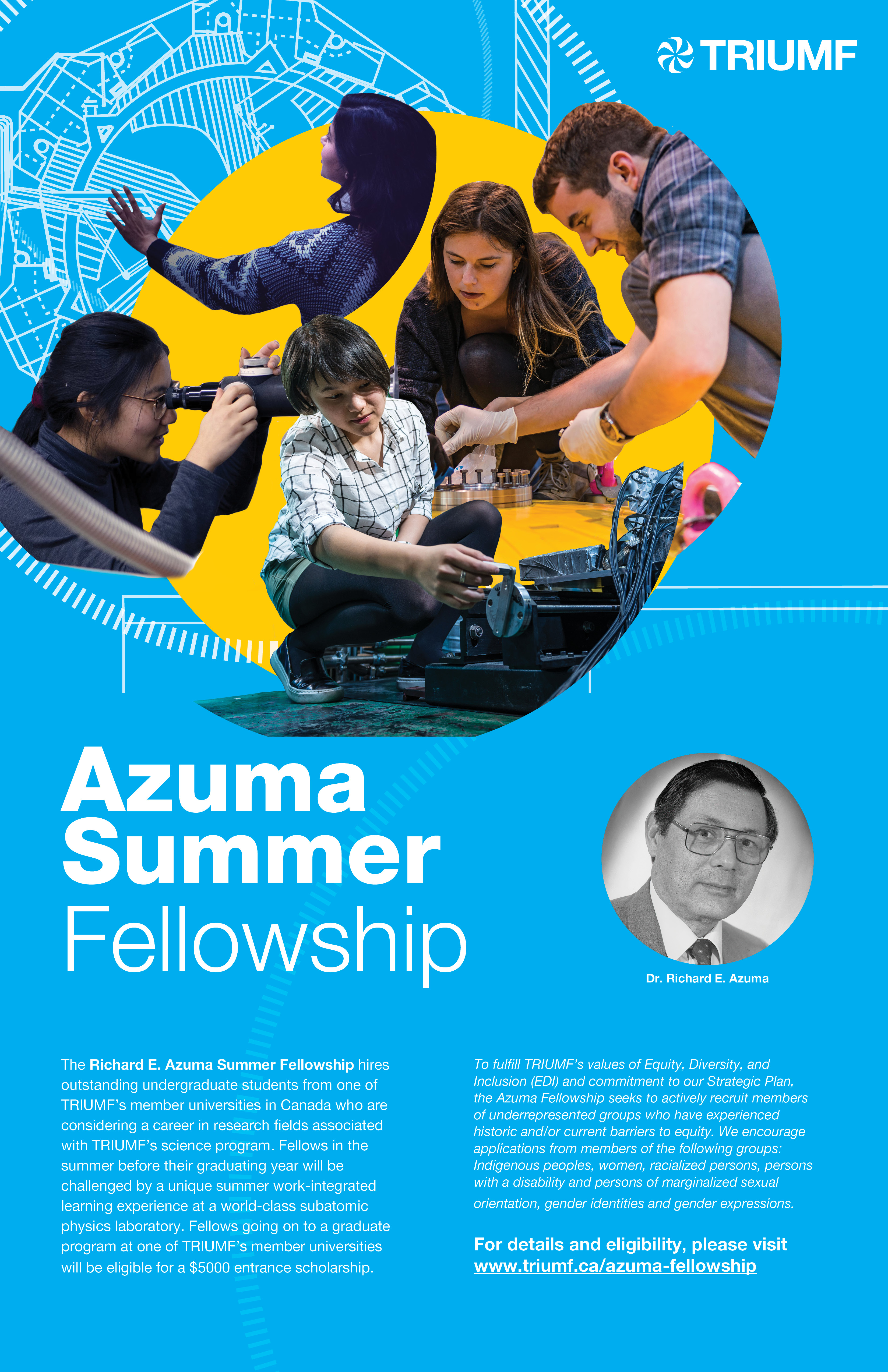
Fellowship details
The Richard E. Azuma Fellowship is intended to support promising undergraduate students in Canada who are considering a career in research fields associated with TRIUMF’s science program. They will be students who are known amongst peers and teachers as exceptional individuals with a demonstrated track record of talent, passion, and leadership. Along with encouraging students with stellar undergraduate records, the Azuma Fellowship seeks to support students from diverse backgrounds and welcomes applicants who self-identify as members of equity deserving groups.
Two Fellowships will be awarded each year to students attending one of TRIUMF’s Member Universities **. Students are eligible to hold the paid Fellowship at TRIUMF for four months in the summer break before their final graduating year. Fellows will have the opportunity to choose from a carefully selected list of unique research opportunities. Travel to and from Vancouver, as well as a one-week stay at TRIUMF House, will be reimbursed.
Fellows who later elect to attend graduate school at one of TRIUMF’s Member Universities ** will be eligible for a $5000 entrance scholarship.
About Richard (Dick) Ernest Azuma

Dick Azuma spent his career as as professor in the Department of Physics at the University of Toronto, and was a long-standing member of the TRIUMF community who made seminal contributions to various topics in nuclear astrophysics. Dick was instrumental in establishing the field of experimental nuclear astrophysics in Canada at the University of Toronto accelerator, then later at TRIUMF, where the well-known "Red Giant" experiment to constrain the critical 12C(alpha,gamma)16O reaction was performed by his group using the TISOL facility. That experiment laid the foundation for the ISAC and ARIEL facilities, and rare-isotope science in general, at TRIUMF. He was also one of the original founders of the DRAGON project at ISAC.
With roots at TRIUMF as old as the lab itself, Dick’s research and advocacy supporting the laboratory’s scientific program have had a long-lasting impact. Dick was a passionate educator and fierce defender against prejudice and discrimination made him a valued mentor to a generation of emerging science leaders.
As a Canadian of Japanese heritage, in his early life Dick experienced significant hardship, including internment during the Second World War, due to systemic racism, oppression, and outright violence. After being kicked out of high school in Vancouver at age twelve, Dick worked as a logger until 14, when he was readmitted to high school, eventually achieving the second-highest mark in the provincial exams. Dick went on to achieve his BA and MA in Nuclear Physics at the University of British Columbia, and a Ph.D. from the University of Glasgow.
Dick was a revered mentor, advisor, and teacher for many generations of young and hopeful graduate students throughout his academic career. He instilled in all his love and excitement for nuclear physics, inspiring in them the same commitment and respect for their students as he had for them.
You can read more about Dick here.
Eligibility and Requirements

At TRIUMF, we combine outstanding scholarship with innovative research. We are proud of our world-leading facilities, our training opportunities for the next generation of innovators, our commercial activities, our incubation of creative ideas and technologies, and our contributions to major projects around the globe. We are committed to recruiting, developing and retaining people who help us build a better future.
- Be undergraduate students enrolled at a TRIUMF Member University in the summer before their final year before graduation.
- e.g for the Summer 2025 award, students must be eligible to graduate in 2026.
- e.g, just completed 3rd year of 4 year program
- Be a Canadian Citizen or Permanent Resident of Canada
- or, be a foreign undergraduate student who holds a Canadian Work Permit in addition to their Study Permit.
- Be recommended by an administrative professor in their department - e.g. Chair, or Undergraduate Chair
December 15, 2024: Job opportunities posted. Applications for the Azuma Fellowship now open! Deadline extended.
Click HERE to access the Azuma fellowship application site
Application Deadline [updated]: January 10, 2024
Students will be hired as Temporary TRIUMF Employees within the Student Program. Salary will be commensurate with experience.
Any questions about the Fellowship and/or application process, can be referred to Marcello Pavan, Head Academic and User Programs, at marcello@triumf.ca
Job Opportunities for Summer 2025
- Antimatter Physics with the ALPHA Collaboration - Dr. Makoto Fujiwara
Azuma Fellows have the opportunity to be part of the world-renowned ALPHA antmatter project at CERN and TRIUMF. As a part of this international project, you will have the chance to work on cutting-edge research in one or more of the following areas: antimatter detectors, antimatter traps, antimatter laser spectroscopy, and antimatter gravity experiments. The fellowship will require travel to TRIUMF in Canada, and CERN in Switzerland, where you will spend approximately 2 months at each location. This will give you the opportunity to immerse yourself in the research culture and gain valuable experience in a truly international setting. - Manipulating individual exotic atoms for precision nuclear physics studies - Dr. Ania KwiatkowskiAtomic mass measurements play a critical role in many disciplines from forensics to metrology. In nuclear physics of short-lived nuclei, masses dictate the energetically allowed processes that drive the birth and death of a star, indicate the limits of nuclear existence, provide insights into the nuclear force, and constrain our understanding of the Standard Model. Unprecedented precision and accuracy therein have been achieved with ion-trap mass spectrometers, where a single atom's mass is weighed. TITAN is a world-class facility deploying four on-line ion traps. The student will learn about state-of-the-art technology, advanced ion manipulation, low-energy beam transport, charged-particle detectors, and control of a complex research facility as well as the nuclear physics motivation for atomic mass measurements. In addition to working on an ion-trap mass spectrometer, the student will participate in all on-line experiments and co-author any resultant papers.
- Precision quantum-enabled control of radioactive molecules with the RadMol experiment - Dr. Stephan MalbrunotWhy do we exist? Why is everything made of matter? And where is all the antimatter? The answers may lie hidden within atoms themselves. At RadMol, we use cutting-edge quantum-enabled precision control techniques to probe radioactive molecules, uncovering the deep mysteries of the universe.As an Azuma Fellow, you'll have the unique opportunity to work with these molecules, helping to design, build, and characterize our next-generation experimental machine. This hands-on experience will give you the technical skills needed for careers in quantum computation, simulation, ion trapping, and more. Beyond academia, you'll develop world-class problem-solving skills, preparing you for success in any future career path.
- Innovating Cancer Imaging and Treatment: Theranostic Radiotracer Development - Justin BaileyThis summer, gain invaluable hands-on experience in radiochemistry by joining our team in the development of a cutting-edge theranostic radiotracer—an innovative tool that combines cancer diagnosis and treatment. As an Azuma Fellow, you will work directly with medical radionuclides, contributing to the synthesis, characterization, and optimization of a radiotracer intended for clinical applications. You will also be involved in data analysis, troubleshooting experimental procedures, and refining lab techniques critical to the production of radiopharmaceuticals.
- Commissioning the Ultra-cold Neutron experiment at TRIUMF - Ruediger Picker
TRIUMF is building one of the world's highest intensity source for ultracold neutrons (UCN). The international collaboration (with KEK in Japan and others) has entered the testing and commissioning phase for thsi state-of-the-art facility. During May to August 2025, several UCN production beam times are planned. The student will have the opportunity to contribute to making these possible, taking shifts during the beam time and analyzing data. - Searching for new particles with the DarkLight experiment - Katherine PachalThe Azuma fellow will work on commissioning and data taking for the DarkLight experiment. DarkLight is an experiment being built at TRIUMF which will search for dark photons and similar new particles at a mass range around 12 to 18 MeV. The experiment will be placed in the 30 MeV electron beamline at TRIUMF. This small experiment consists of a target, two magnetic spectrometers, tracking detectors, and plastic-scintillator-based triggers. We anticipate that the experiment will be installed in the beamline by the time the student begins their project, and may ideally already have gathered commissioning data. The student will assist with ongoing tests and/or data taking and contribute to analysis of the collected data. In this way, the student will gain experience with both software and hardware and will make critical contributions to this exciting new experiment.
Testing silicon microstrip "petals" for the ATLAS Inner Tracker - Luise Poley
To take snapshots of the smallest components of our universe, we need to build the largest, most precise camera in the world. The ATLAS experiment on the Large Hadron Collider is undergoing an upgrade to replace its innermost tracking system with the Inner Tracker. TRIUMF is building and testing silicon microstrip modules into structures called petals, all of which is done by hand.
You will work with a dynamic team at TRIUMF, UBC, and SFU, as well as collaborate with institutes across the world to characterise these petals, providing critical insight into how they behave at a range of different temperatures. This position primarily involves hands-on work in the cleanroom, such as electrical tests, thermal imaging, hunting for sources of unexpected noise, tests with climate chambers and liquid nitrogen and occasionally the careful disassembly of entire structures. This work incorporates experimental design, and the collection, processing, and publication of results.
- Machine Learning Applications in nuclear, particle, and medical physics:
- Machine learning development for particle detector segmentation with the ATLAS detector at the LHC. - Max Swiatlowski
- Quantum machine learning simulation for calorimeter showers in the ATLAS detector at the LHC. - Max Swiatlowski
- Machine Learning-based image reconstruction and detector optimization for the Targeted Alpha Therapy medical imager. - Wojtek Fedorko
- Liquid Xenon Calorimetry for the Search for New Physics - Dr. Chloe Malbrunot
Liquid xenon (LXe) detectors are planned to be used in a two cutting-edge TRIUMF-related research programs: the nEXO and PIONEER experiments. nEXO aims at uncovering the nature of the neutrino through the first detection of neutrinoless double beta decay (using 5t of xe-136 isotope) that would show that neutrinos are their own anti-particle. PIONEER, a recently approved experiment, will be searching for new physics in pion decays using a 7tonne LXe calorimeter. The student’s work will be embedded within an R&D collaborative effort using the Light-only Liquid Xenon (LoLX) experiment to characterize new photosensors and study LXe scintillation processes. A particular R&D work will focus on the development of a LXe purity monitor for LoLX and a larger detector prototype under construction. - Undergraduate Researcher for Spectral Data Analysis and Machine Learning - Aurelia Laxdal
The prospective student will work with advanced spectroscopy equipment to analyze spectral data in the near infrared range, employing various machine learning algorithms in the process. The role will also involve simulation and analysis work to characterize the experimental data and gain a better understanding of any sources of error. This position offers the opportunity for the student to gain hands-on experience at the intersection of physics, data science, and machine learning.

